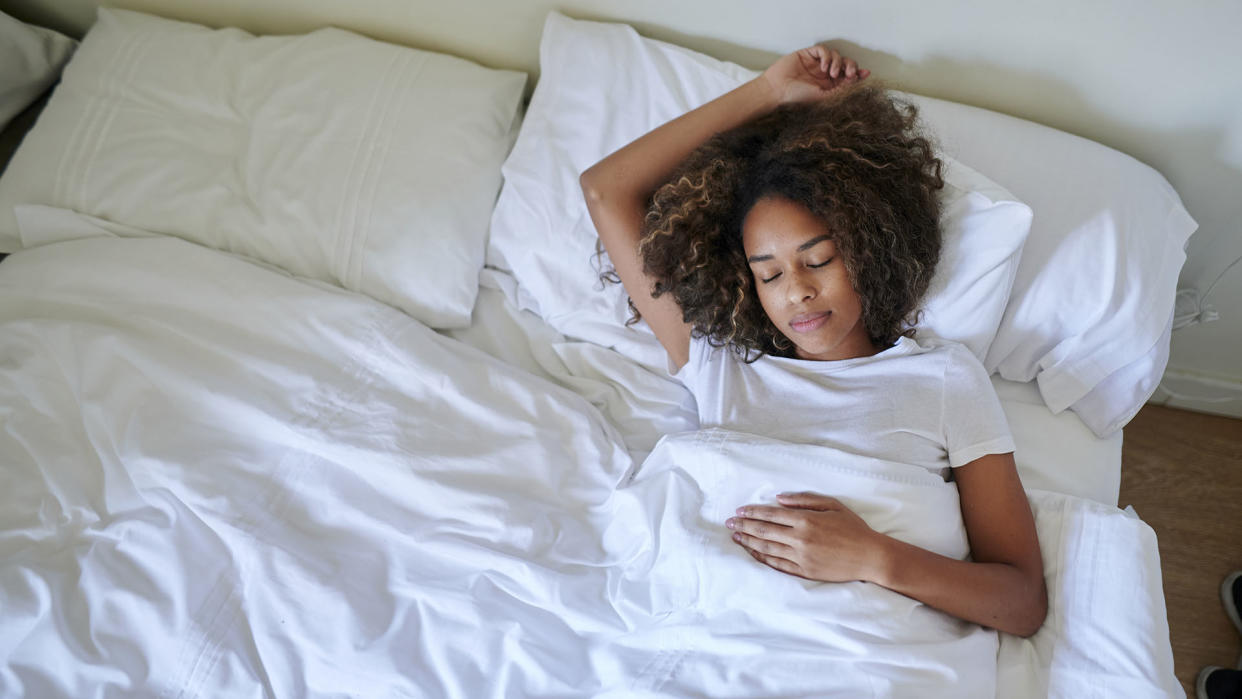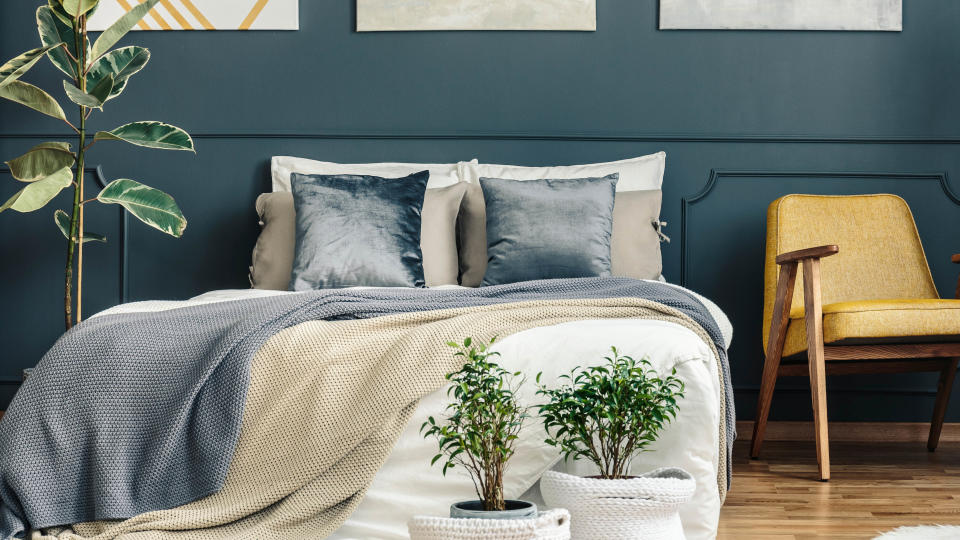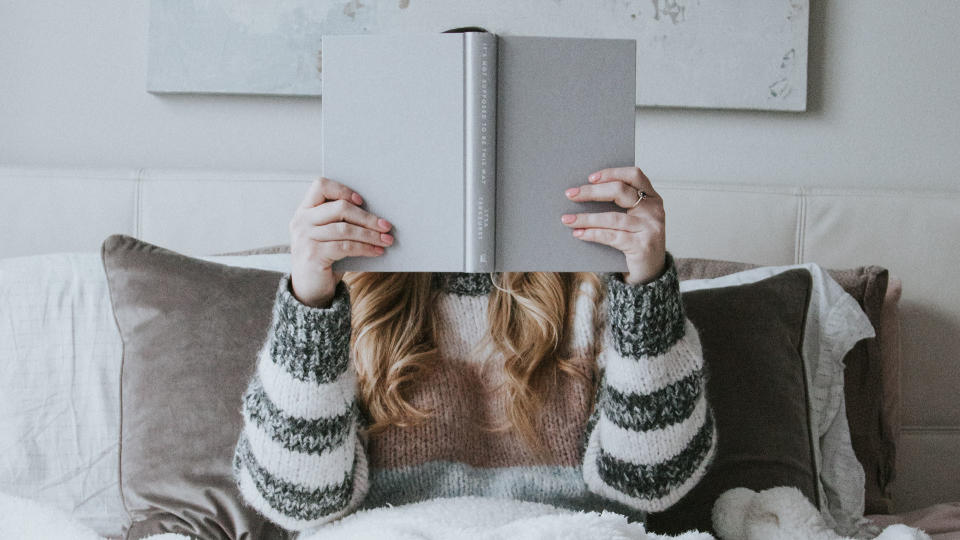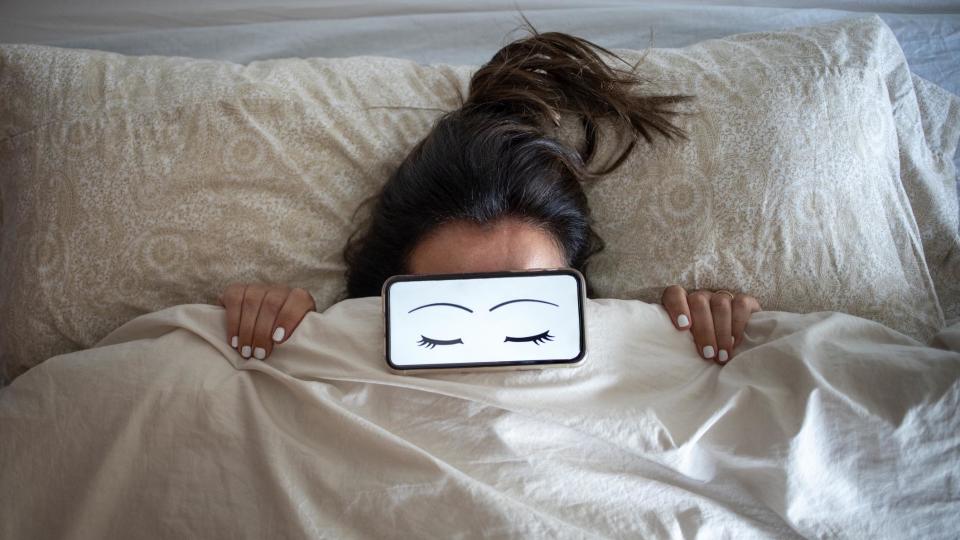What is sleep hygiene? Here are 6 ways to improve yours

What is sleep hygiene? It's one of those terms you may have come across when researching ways to sleep better at night – but how does it work, and why should it be such an important part of your bedtime routine?
On a basic level, sleep hygiene refers to creating and following healthy sleep habits that help you to drop off easier and stay asleep for longer. It also refers to your sleep environment. Light, noise and clutter can make it more difficult to effectively wind down.
There are lots of tips and techniques you can follow, but in this article, we're focusing on six simple sleep hygiene habits you can adopt to improve the quality and length of your slumber. The best mattress will only get you so far if your sleep hygiene isn't up to par so if that sounds like you, keep reading...
What is sleep hygiene?
Sleep hygiene refers to creating and following healthy sleep habits and routines. It also refers to your bedroom environment, as clutter, noise and light pollution can easily derail your sleep.
Some examples of good sleep hygiene include getting up at the same time each day (even on weekends) and not consuming caffeine after 12 noon.
Once you get your head around good sleep hygiene, how to do it and what tips to follow, you’ll be amazed at how easy it is to clean up your sleep. If you’re experiencing ongoing sleep issues though, we’d recommend speaking to a sleep doctor or your general health practitioner.
6 tips for good sleep hygiene
Below are six ways you can improve your sleep hygiene. These aren't overnight fixes, though. In order to make them second nature to you, we recommend incorporating them as part of your bedtime routine for at least 30 days.
1. Establish a consistent sleep schedule
You should try to go to sleep and wake up at the same time every day, including weekends. This will regulate your body’s sleep cycle, known as circadian rhythms. Studies show that following a consistent sleep schedule yields better health outcomes in adults aged 18 years and older.
An established sleep schedule can also reduce daytime sleepiness, leaving you more alert and refreshed. If you feel the need for a midday snooze, you can learn how to nap and still sleep well at bedtime.
Of course, following a consistent schedule can be challenging at times and it’s easy to slip back into bad habits. Our guide on how to reset your sleep schedule will help you get back into a healthy routine. You can also find out what your sleep window is (the period of time in which your body naturally wants to go to sleep) and use this to improve your sleep schedule.

2. Make your bedroom conducive to sleep
You can implement all the sleep techniques in the world but if your bedroom isn’t conducive to rest, they’ll all be wasted. Although what makes a bedroom inviting varies from person to person, there are some absolutes:
Have a supportive mattress. If you’re sleeping on an older mattress, it may no longer be supporting your spine, leading to the onset of aches and pains. (In that case, it's time to browse this month's mattress sales.) Meanwhile, if your bed is still in good shape, you can try our hacks to sleep better on an uncomfortable mattress.
Invest in a good pillow. Your pillow should work with your mattress to provide a comfortable night's rest. Browse our best pillow guide to help find the right one.
Maintain an optimal temperature. For most people, a bedroom temperature of around 16-19C (or 60-67F) is conducive for sleeping. Your room should be on the cooler side at night to aid with the body's thermoregulation process.
Block out light and noise. Limit external distractions as much as possible. You can invest in blackout curtains to keep light from penetrating your space, although an eye mask will also do the job. Meanwhile, If you live somewhere noisy or share your bed with a snorer, try wearing earplugs. A white noise machine or a fan can work, too.
Infuse a calming scent. If you're not sensitive to smells, try an essential oil to help you wind down. Lavender is perhaps the most popular; studies show that it can help with various conditions, including insomnia.
Keep your room tidy. Put away your laundry and place books back on their shelves. A cluttered space can make it harder to wind down. Your bed should be fresh and clean, too – invest in a good mattress protector and remember to change your bedsheets.

3. Create a relaxing, consistent bedtime routine
Much like setting a sleep schedule, you also need to set a consistent bedtime routine. Getting into the habit of a relaxing routine at the same time each night helps your body to recognize that it’s time to go to sleep. We recommend starting your routine 30 to 60 minutes before you go to bed.
Need some relaxation ideas? Here are a few you can try:
Dim your lights. If you can't do that, turn off your main light and use a bedside light instead. Bright lights can hinder the production of melatonin, which your body needs to create in order to sleep.
Take a warm bath or shower. The drop in body temperature as you cool down afterward will help you feel sleepy.
Avoid electronic devices. Your phone and tablet emit blue light, which can disrupt your circadian rhythm. Keep to analog activities before bed, like reading a book.
Listen to soothing music. Meditation can help calm the body and mind, and soothing music can help get you there. You can also opt for a guided meditation for deep sleep.
Remember to follow the same routine each night. This includes putting on night clothes, brushing your teeth and washing your face. Your body will start to associate this with getting ready for sleep.

4. Put down your smartphone
As we touched upon in the previous section, electronic devices emit blue light, which can reduce melatonin levels in our bodies. Most of us are probably guilty of taking our phones to bed, but studies show that staring at our screens when we’re trying to drift off can make it far harder to fall asleep. Try to avoid using your phone or other devices when winding down for bed, or even keep them out of your bedroom altogether.
And if you must have your phone in your bedroom because you’re using an alarm feature, make sure the notifications are silenced overnight so you aren’t woken by buzzing and lights. Alternatively, consider investing in a separate sunrise alarm clock.
5. Eat and drink sensibly throughout the day
No one is suggesting that you give up all the food and drink you enjoy, but it's worth following a few sensible and simple guidelines.
First, don't eat too close to bedtime and avoid heavy or spicy meals at dinner. You could still be digesting your food when it’s time for bed, which could lead to indigestion or heartburn keeping you awake. If you’re peckish just before bedtime, have a very light snack.
Next, moderate your alcohol consumption and try to avoid it late at night. Alcohol can make it easier to fall asleep in the first place, but it’s very likely to disrupt your sleep later.
Finally, try to limit your caffeine intake to the morning. Everyone’s metabolism is different, but caffeine can stay in the system for three to seven hours after consumption.

6. Make exercise part of your daily routine
As little as 30 minutes of exercise per day can lead to a big improvement in the quality of your sleep. And if you have the chance to exercise outside, that's even better as this will expose you to more natural light – which in turn will help regulate your sleep cycle.
However, you shouldn't exercise within an hour or two of bedtime as this increases your body temperature and energy levels, making it harder to sleep. Instead, we’d recommend doing some gentle stretches to help relax your body and prepare it for sleep. You can also try a bedtime yoga routine.
